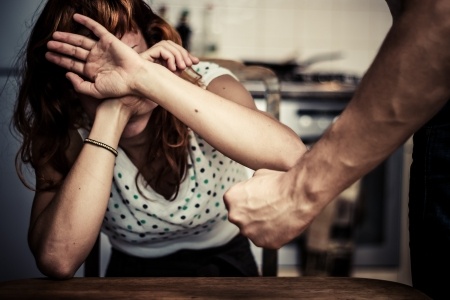| Finding out that a judge issued a restraining order against you can be a shock-you may feel surprised, embarrassed, angry, or confused. If you ever find yourself on the other side of a restraining order, don't panic! You will have the opportunity to state your case and clear your name. 
In many cases, a domestic violence restraining order (DVRO) can be issued on an emergency or temporary basis after your partner or spouse sees a judge alone. During these ex parte hearings, the judge will hear only one side of a story, and can issue a temporary DVRO based on what your partner says. Unfortunately, for many people this results in restraining orders being issued because of baseless accusations or exaggerated claims. You will have the opportunity to tell the judge your side of the story at a hearing and get the restraining order lifted. You may be tempted to ignore this hearing, especially if the person who requested the DVRO against you is someone you no longer wish to see. It may seem like a hassle to go to court, but remember that these temporary restraining orders can become permanent, and may affect your legal rights for years afterward. Always take the time to attend the hearing and bring an experienced defense attorney with you. A DVRO is part of the public record and will show up on your criminal background check. This may affect your ability to get a job, or may cause problems for you with your current employer. As a result of a DVRO, you may be forced to move out of your house, with little time to grab anything except a change of clothing. A DVRO may mean that you have to forfeit any guns or weapons you own, and your child support or alimony payments may be increased. If you have children, you may not be able to see them, and there may be places or areas where you are no longer allowed to go.  Most importantly, violating any of the terms of a DVRO is a criminal offense in and of itself. You can be arrested, and may face misdemeanor or even felony charges if you disobey any of the DVRO's provisions. Most importantly, violating any of the terms of a DVRO is a criminal offense in and of itself. You can be arrested, and may face misdemeanor or even felony charges if you disobey any of the DVRO's provisions.
If you are ever served with a DVRO or other type of restraining order, the first thing you should do is read the order carefully. Make sure you know what the court has prohibited you from doing, so that you don't end up in contempt of court. Never contact the person who requested the DVRO, even if you think you can work it out yourself. Next, contact a California criminal defense attorney as soon as possible. An attorney will help you gather important information which can be used in your defense, such as text messages and other communications, as well as witnesses who can vouch for your behavior. When a restraining order is requested by a family member or partner, emotions run high and things can get heated. A judge will not be impressed with mudslinging or an argument in the courtroom. By using a DVRO defense attorney, you will have an ally on your side who knows the law and can help you make the best impression to the court. At the Law Offices of Virginia L. Landry, we understand that allegations of domestic violence are serious, and unfortunately, often fabricated. Restraining orders are one of the most abused aspects of the law, and are often used as retaliation during a messy divorce or a bad breakup. Don't let a DVRO or other restraining order taint your reputation. Contact Virginia Landry and her team as soon as possible, and let her experienced Orange County criminal defense attorneys fight for you. |